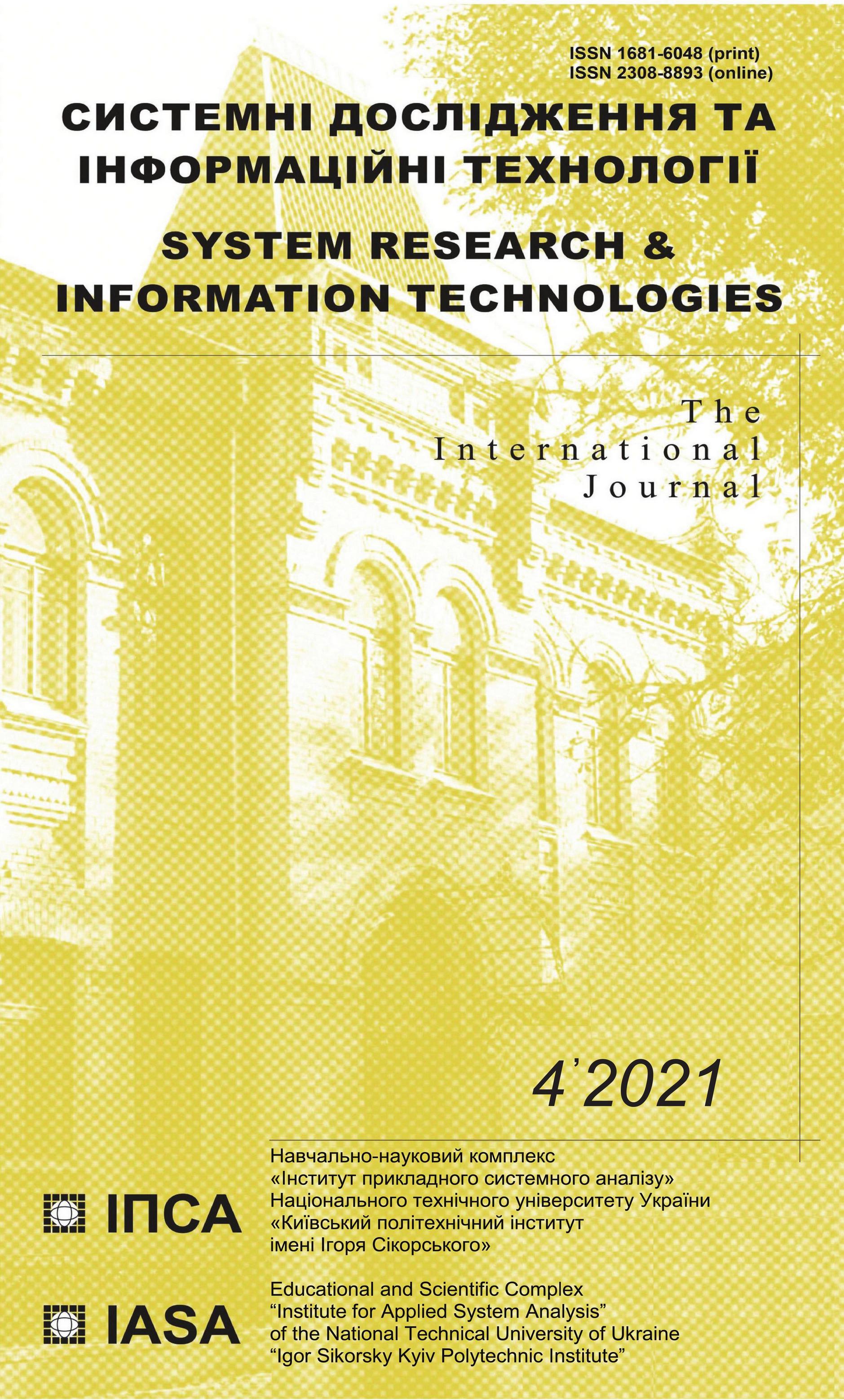Information technology for creating intelligent computer programs for training in algorithmic tasks. Part 1: Mathematical foundations
DOI:
https://doi.org/10.20535/SRIT.2308-8893.2021.4.02Keywords:
intelligent tutor system, algorithmic tasks, diagnostic models, Bayesian networks, student modelAbstract
The existing education system (in particular higher education) due to its focus on basic knowledge is quite inert and cannot satisfy the needs of the modern labor market, which is rapidly developing. Some professions transform or disappear, while the others appear almost every day. Today the employers need specialists with certain skills and abilities, who are able to develop them and adapt to specific projects. That is why short-term courses are very popular today, especially online and with a mentor — a specialist in a particular field. At the same time, graduates of such courses are mostly unable to solve complex problems and make competent decisions on their own. There is a requirement of creation of training programs for testing the development and implementation of tools for productive knowledge and skills transferring in a particular field. The article shows a possible approach to provide some interactivity to computer tutoring tools in addition to the game principle, information visualization and other techniques that have already proven themselves in information systems. It will give an opportunity to create a platform that can accumulate new technologies, integrating them into a digital tutoring environment that can be adapted to each student.
References
T. Klingberg, The Overflowing Brain: Information Overload and the Limits of Working Memory. Oxford University Press, 2009, 216 p.
A. Kulik, “Rational intellectualization of aircraft control: Resources-saving safety improvement”, Studies in Systems, Decision and Control, 105, pp. 173–192, 2017.
A. Chukhray, Methodology for learning algorithms: monograph. National Aerospace University “KhAI”, 2017, 336 p.
J.P. Martínez Bastida, O. Havrylenko, and A. Chukhray, “Developing a self-regulation environment in an open learning model with higher fidelity assessment”, Communications in Computer and Information Science, 826, pp. 112–131, 2018.
M.Z. Zgurovsky and N.D. Pankratova, System analysis: problems, methodology, applications. Kiev: Nauk. opinion, 2011.
N.D. Pankratova and N.I. Nedashkovskaya, “Hybrid method of multicriteria evaluation of decision alternatives”, Cybernetics and Systems Analysis, vol. 50 (5), pp. 701–711, 2014.
G. Gorelova and N. Pankratova, “Strategy of complex systems development based on the synthesis of foresight and cognitive modeling methodologies”, IEEE First International Conference on System Analysis & Intelligent Computing (SAIC 2018), pp. 1–6.
M.Z. Zgurovsky, P.I. Bidyuk, and A.N. Terentyev, “Methods for constructing Bayesian networks based on estimating functions”, Cybernetics and Systems Analysis, no. 2, pp. 81–88, 2008.
M.Z. Zgurovsky, P.I. Bidyuk, O.M. Terentyev, T.I. Prosyankina-Zharova, Bayesian Networks in Decision Support Systems. Edelweiss Publishing Company, 2015, 300 p.
N.D. Pankratova, “System analysis in the dynamics of diagnosing complex technical systems”, System research and information technology, no. 4, pp. 33–49, 2008.

